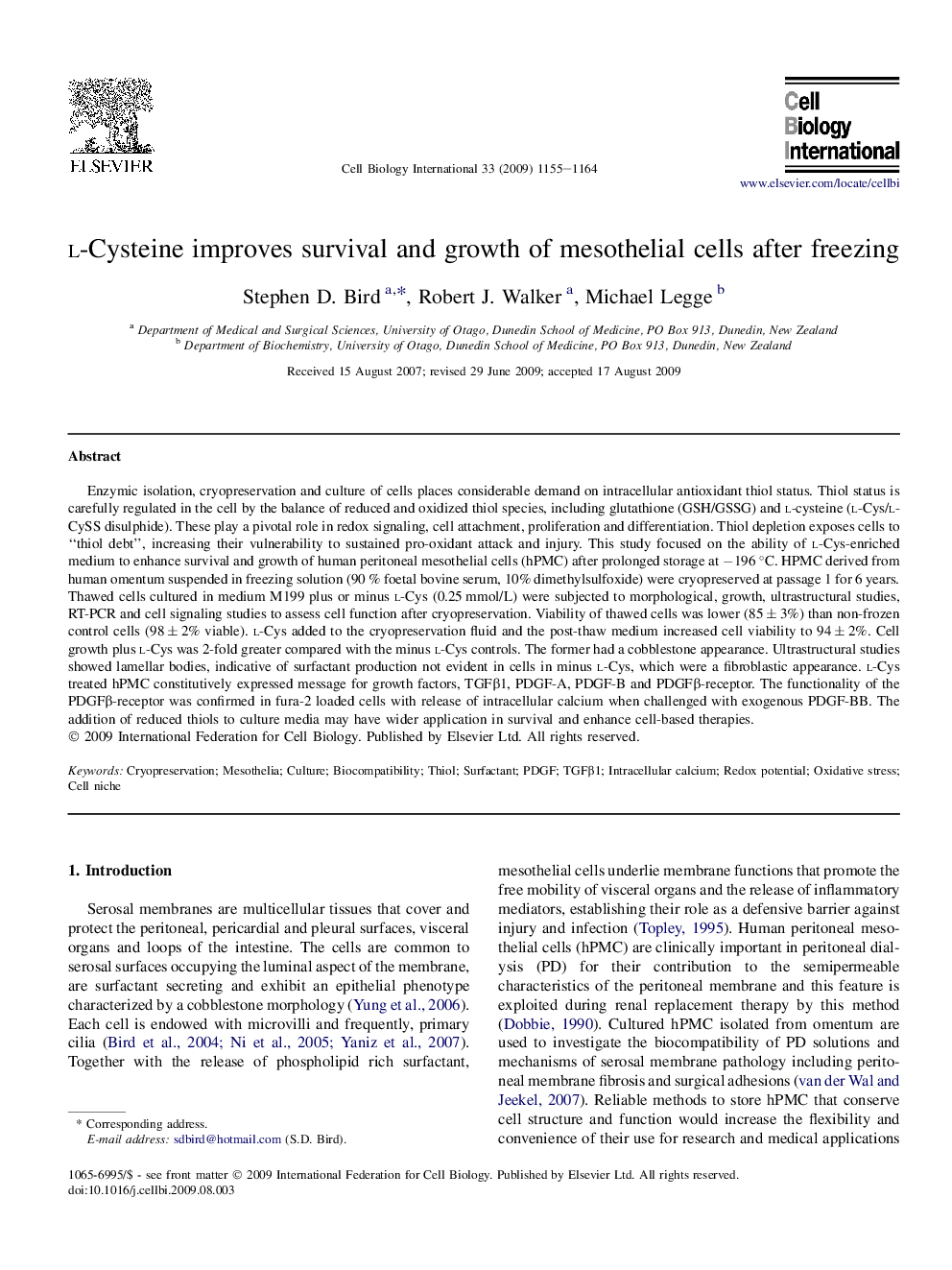| Article ID | Journal | Published Year | Pages | File Type |
|---|---|---|---|---|
| 2067023 | Cell Biology International | 2009 | 10 Pages |
Abstract
Enzymic isolation, cryopreservation and culture of cells places considerable demand on intracellular antioxidant thiol status. Thiol status is carefully regulated in the cell by the balance of reduced and oxidized thiol species, including glutathione (GSH/GSSG) and l-cysteine (l-Cys/l-CySS disulphide). These play a pivotal role in redox signaling, cell attachment, proliferation and differentiation. Thiol depletion exposes cells to “thiol debt”, increasing their vulnerability to sustained pro-oxidant attack and injury. This study focused on the ability of l-Cys-enriched medium to enhance survival and growth of human peritoneal mesothelial cells (hPMC) after prolonged storage at â196 °C. HPMC derived from human omentum suspended in freezing solution (90 % foetal bovine serum, 10% dimethylsulfoxide) were cryopreserved at passage 1 for 6 years. Thawed cells cultured in medium M199 plus or minus l-Cys (0.25 mmol/L) were subjected to morphological, growth, ultrastructural studies, RT-PCR and cell signaling studies to assess cell function after cryopreservation. Viability of thawed cells was lower (85 ± 3%) than non-frozen control cells (98 ± 2% viable). l-Cys added to the cryopreservation fluid and the post-thaw medium increased cell viability to 94 ± 2%. Cell growth plus l-Cys was 2-fold greater compared with the minus l-Cys controls. The former had a cobblestone appearance. Ultrastructural studies showed lamellar bodies, indicative of surfactant production not evident in cells in minus l-Cys, which were a fibroblastic appearance. l-Cys treated hPMC constitutively expressed message for growth factors, TGFβ1, PDGF-A, PDGF-B and PDGFβ-receptor. The functionality of the PDGFβ-receptor was confirmed in fura-2 loaded cells with release of intracellular calcium when challenged with exogenous PDGF-BB. The addition of reduced thiols to culture media may have wider application in survival and enhance cell-based therapies.
Keywords
Related Topics
Life Sciences
Biochemistry, Genetics and Molecular Biology
Biophysics
Authors
Stephen D. Bird, Robert J. Walker, Michael Legge,
